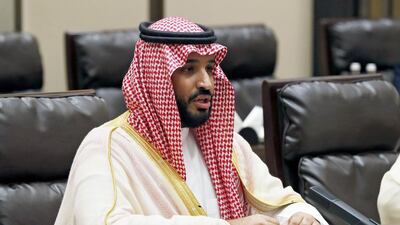These are times of major change for Saudi Arabia. The kingdom is playing host to Saad Hariri, fresh from his resignation as Lebanon's prime minister, but not before he had pointed the finger at Iranian meddling and told the world that he feared he would be assassinated if he stayed in office.
On the same day, Iran's proxies in Yemen apparently aimed a missile at the city's King Khaled International Airport in what the Saudi-led coalition has called "an act of war". The international community has been quick to condemn the attack. US president Donald Trump described the missile as a "shot" aimed at the kingdom by Iran. Riyadh, which has been intercepting projectiles flying in from Yemen for some time, acted swiftly, closing all sea, air and land borders with Yemen. Nothing can pass through these corridors, save for humanitarian aid. The tragic death of Saudi prince Mansour bin Muqrin, killed in a helicopter crash near the border, has deepened the sense of urgency pervading the region.
__________
Read more:
Senior Saudi figures accused of bribery and extortion
Saudi-led coalition blames Iran for missile attack and calls it an 'act of war'
__________
These developments are occurring against a backdrop of sweeping social and political changes within the kingdom. The speed of transformation has been dizzying. As these pages have previously noted, Saudi Arabia's young Crown Prince, Mohammed bin Salman, is a man with a mission. In tune with the aspirations of his nation's youth, who represent 70 per cent of the nation's population, he has overseen a broad dismantling of orthodoxies. Saudi Arabia will soon have an entertainment city outside Riyadh, a tourist haven on its Red Sea coastline and a $500 billion megacity straddling Saudi Arabia, Jordan and Egypt that, when complete, will put it into the same stratosphere as Dubai. The announcements of these projects, part of the prince's Vision 2030 blueprint for Saudi Arabia's post-oil economy, have been accompanied by substantial political freedoms, the royal decree lifting the ban on female drivers being one of the most significant of all.
But reforms, even when driven by the best intentions, can only work in a transparent landscape and a policy that permits a class of individuals to profit from corruption cannot claim to be that. Prince Mohammed grasps this, which is why he told an interviewer earlier this year: “Anyone involved in corruption will not be spared, whether he’s a minister or a prince.” In the new Saudi Arabia, then, no one is above the law. And those who made the error of dismissing this as just another slogan were jolted out of their complacency by the anti-corruption purge on Saturday.
Titles, positions, ties and wealth can no longer buy immunity from the law in the transparent and just system Prince Mohammed is striving to usher in. The heightened tensions of the past few days ought not to distract us from the extraordinary transformation that Saudi Arabia is undergoing for the better.

